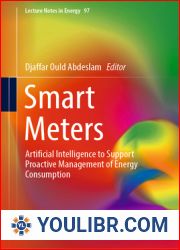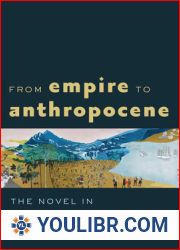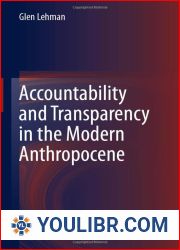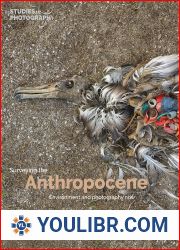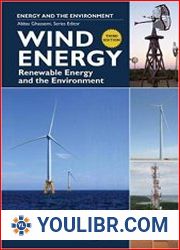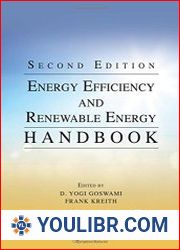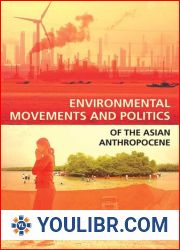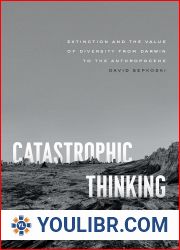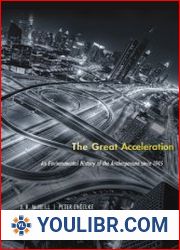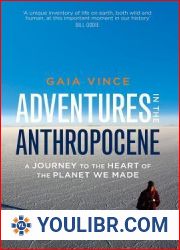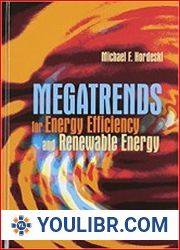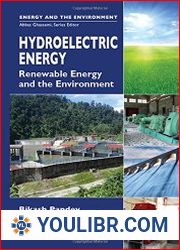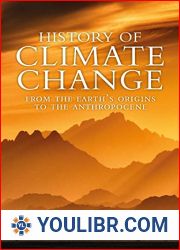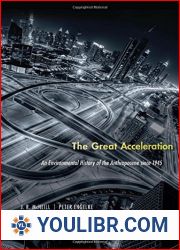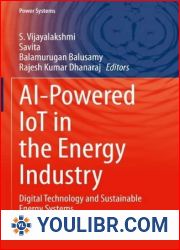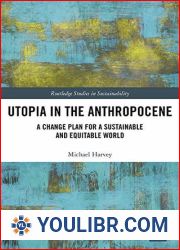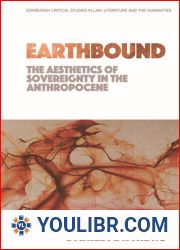
BOOKS - Energy Futures: Anthropocene Challenges, Emerging Technologies and Everyday L...

Energy Futures: Anthropocene Challenges, Emerging Technologies and Everyday Life (De Gruyter Contemporary Social Sciences Book 10)
Author: Simone Abram
Year: December 31, 2022
Format: PDF
File size: PDF 9.5 MB
Language: English

Year: December 31, 2022
Format: PDF
File size: PDF 9.5 MB
Language: English

The book "Energy Futures: Anthropocene Challenges, Emerging Technologies, and Everyday Life" published by De Gruyter Contemporary Social Sciences Series, offers a comprehensive analysis of the current state of energy production, consumption, and its impact on human society and the environment. The text argues that the traditional approaches to addressing energy challenges, driven by engineering, data analytics, and capital, are no longer sufficient to meet the demands of the Anthropocene era. Instead, the book proposes a new critical and interventional futures-oriented energy anthropology that combines the theories and methods of futures anthropology with the critical perspectives of energy anthropology to disrupt dominant narratives about our energy futures. The book is divided into four parts, each exploring a different aspect of energy futures. Part I, "Imagining Energy Futures examines the need to rethink how energy is sourced, shared, and used in light of climate, social, health, and political crises. Part II, "Challenges of the Anthropocene delves into the challenges posed by emerging technologies, data analytics, and automation, and their implications for energy generation, storage, and demand. Part III, "Energy Infrastructures and Politics critically evaluates the existing energy infrastructure and politics that shape our energy systems, highlighting the urgent need for a more responsible and ethical approach to energy production and consumption.
Книга «Energy Futures: Anthropocene Challenges, Emerging Technologies, and Everyday Life», опубликованная De Gruyter Contemporary Social Sciences Series, предлагает всесторонний анализ текущего состояния производства, потребления энергии и ее влияния на человеческое общество и окружающую среду. В тексте утверждается, что традиционных подходов к решению энергетических проблем, обусловленных инженерией, аналитикой данных и капиталом, уже недостаточно для удовлетворения потребностей эпохи антропоцена. Вместо этого в книге предлагается новая критическая и интервенционная фьючерсно-ориентированная энергетическая антропология, которая сочетает теории и методы фьючерсной антропологии с критическими перспективами энергетической антропологии, чтобы разрушить доминирующие нарративы о нашем энергетическом будущем. Книга разделена на четыре части, каждая из которых исследует различные аспекты энергетического будущего. В части I «Представление об энергетическом будущем» рассматривается необходимость переосмысления того, как источники энергии, их совместное использование и использование используются в свете климатических, социальных, медицинских и политических кризисов. Часть II, «Проблемы антропоцена», посвящена проблемам, связанным с новыми технологиями, аналитикой данных и автоматизацией, а также их последствиям для производства, хранения и спроса на энергию. Часть III, «Энергетические инфраструктуры и политика» критически оценивает существующую энергетическую инфраструктуру и политику, которые формируют наши энергетические системы, подчеркивая настоятельную необходимость более ответственного и этичного подхода к производству и потреблению энергии.
livre « Energy Futures : Anthropocene Challenges, Emerging Technologies, and Everyday Life », publié par la Série des sciences sociales contemporaines de De Gruyter, propose une analyse complète de l'état actuel de la production, de la consommation d'énergie et de son impact sur la société humaine et l'environnement. texte affirme que les approches traditionnelles pour résoudre les problèmes énergétiques liés à l'ingénierie, à l'analyse des données et au capital ne sont plus suffisantes pour répondre aux besoins de l'ère anthropocène. Au lieu de cela, le livre propose une nouvelle anthropologie énergétique à terme critique et interventionnelle qui combine les théories et les méthodes de l'anthropologie à terme avec les perspectives critiques de l'anthropologie énergétique pour détruire les récits dominants sur notre avenir énergétique. livre est divisé en quatre parties, chacune explorant différents aspects de l'avenir énergétique. La première partie, intitulée « Vision de l'avenir énergétique », examine la nécessité de repenser la manière dont les sources d'énergie, leur partage et leur utilisation sont utilisées à la lumière des crises climatiques, sociales, sanitaires et politiques. La deuxième partie, « s problèmes de l'anthropocène », traite des problèmes liés aux nouvelles technologies, à l'analyse des données et à l'automatisation, ainsi que de leurs conséquences sur la production, le stockage et la demande d'énergie. La partie III, « Infrastructures et politiques énergétiques », critique les infrastructures et politiques énergétiques existantes qui façonnent nos systèmes énergétiques, soulignant la nécessité urgente d'une approche plus responsable et éthique de la production et de la consommation d'énergie.
libro «Energy Futures: Anthropocene Challenges, Emerging Technologies, and Everyday Life», publicado por De Gruyter Contemporary Social Sciences Series, ofrece Un análisis exhaustivo del estado actual de la producción, el consumo de energía y sus efectos en la sociedad humana y el medio ambiente. texto sostiene que los enfoques tradicionales para resolver los problemas energéticos derivados de la ingeniería, la analítica de datos y el capital ya no son suficientes para satisfacer las necesidades de la era Antropoceno. En cambio, el libro propone una nueva antropología energética crítica e intervencionista orientada a futuros que combina teorías y técnicas de antropología de futuros con perspectivas críticas de antropología energética para destruir las narrativas dominantes sobre nuestro futuro energético. libro se divide en cuatro partes, cada una de las cuales explora diferentes aspectos del futuro energético. La parte I, «Visión del futuro energético», aborda la necesidad de repensar cómo las fuentes de energía, su uso compartido y su uso se utilizan a la luz de las crisis climáticas, sociales, sanitarias y políticas. La parte II, « problemas del Antropoceno», trata de los problemas relacionados con las nuevas tecnologías, la analítica de datos y la automatización, así como sus implicaciones para la producción, el almacenamiento y la demanda de energía. Parte III, Infraestructuras y políticas energéticas evalúa de forma crítica las infraestructuras y políticas energéticas existentes que configuran nuestros sistemas energéticos, destacando la necesidad urgente de un enfoque más responsable y ético de la producción y el consumo de energía.
Il libro «Energy Future: Anthropocene Challenges, Emerging Technologies, and Everyday Life», pubblicato dalla De Gruyter Contemporary Sciences Series, offre un'analisi completa dello stato attuale della produzione, del consumo energetico e del suo impatto sulla società umana e sull'ambiente. Il testo sostiene che gli approcci tradizionali per affrontare i problemi energetici derivanti dall'ingegneria, dall'analisi dei dati e dal capitale non sono più sufficienti per soddisfare le esigenze dell'epoca antropocene. Il libro propone invece una nuova antropologia energetica orientata all'energia critica e interventistica, che combina le teorie e le tecniche di antropologia futura con le prospettive critiche di antropologia energetica per distruggere le narrazioni dominanti sul nostro futuro energetico. Il libro è suddiviso in quattro parti, ognuna delle quali esplora diversi aspetti del futuro energetico. La parte I, «Visione del futuro energetico», affronta la necessità di ripensare il modo in cui le fonti energetiche, il loro uso condiviso e il loro utilizzo vengono utilizzate alla luce delle crisi climatiche, sociali, sanitarie e politiche. La parte II, «I problemi dell'antropocene», riguarda i problemi legati alle nuove tecnologie, all'analisi dei dati e all'automazione, nonché le loro implicazioni per la produzione, lo storage e la domanda di energia. Parte III, Infrastrutture Energetiche e Politiche valuta in modo critico le infrastrutture energetiche esistenti e le politiche che formano i nostri sistemi energetici, sottolineando la necessità di un approccio più responsabile ed etico alla produzione e al consumo di energia.
Das Buch „Energy Futures: Anthropocene Challenges, Emerging Technologies, and Everyday Life“, herausgegeben von De Gruyter Contemporary Social Sciences Series, bietet eine umfassende Analyse des aktuellen Zustands der Energieproduktion, des Energieverbrauchs und seiner Auswirkungen auf die menschliche Gesellschaft und die Umwelt. Der Text argumentiert, dass traditionelle Ansätze zur Lösung von Energieproblemen, die durch Technik, Datenanalyse und Kapital verursacht werden, nicht mehr ausreichen, um die Bedürfnisse der Anthropozän-Ära zu erfüllen. Stattdessen schlägt das Buch eine neue kritische und interventionelle Futures-orientierte Energie-Anthropologie vor, die Theorien und Methoden der Futures-Anthropologie mit kritischen Perspektiven der Energie-Anthropologie kombiniert, um dominante Narrative über unsere Energie-Zukunft aufzubrechen. Das Buch ist in vier Teile unterteilt, die jeweils verschiedene Aspekte der Energiezukunft untersuchen. Teil I „Eine Vorstellung von der Energiezukunft“ befasst sich mit der Notwendigkeit, die Art und Weise zu überdenken, wie Energiequellen, ihre gemeinsame Nutzung und Nutzung angesichts klimatischer, sozialer, gesundheitlicher und politischer Krisen genutzt werden. Teil II "Die Herausforderungen des Anthropozäns'befasst sich mit den Herausforderungen neuer Technologien, Datenanalyse und Automatisierung sowie deren Auswirkungen auf Energieerzeugung, -speicherung und -nachfrage. Teil III, „Energieinfrastrukturen und -politiken“ bewertet kritisch die bestehenden Energieinfrastrukturen und -politiken, die unsere Energiesysteme prägen, und betont die dringende Notwendigkeit eines verantwortungsvolleren und ethischeren Ansatzes bei der Erzeugung und dem Verbrauch von Energie.
''
De Gruyter Contemporary Social Sciences Series tarafından yayınlanan "Energy Futures: Anthropocene Challenges, Emerging Technologies, and Everyday Life" (Enerji Gelecekleri: Antroposen Zorlukları, Gelişen Teknolojiler ve Gündelik Yaşam) kitabı, enerji üretimi, tüketimi ve bunun insan toplumu ve çevre üzerindeki etkisinin mevcut durumunun kapsamlı bir analizini sunuyor. Metin, mühendislik, veri analitiği ve sermayenin neden olduğu enerji sorunlarını çözmeye yönelik geleneksel yaklaşımların artık Antroposen döneminin ihtiyaçlarını karşılamak için yeterli olmadığını savunuyor. Bunun yerine, kitap, enerji geleceğimizle ilgili baskın anlatıları parçalamak için gelecek antropolojisinin teorilerini ve yöntemlerini enerji antropolojisinin eleştirel bakış açılarıyla birleştiren yeni bir eleştirel ve girişimsel geleceğe yönelik enerji antropolojisi önermektedir. Kitap, her biri enerji geleceğinin farklı yönlerini araştıran dört bölüme ayrılmıştır. Bölüm I, Enerji Geleceğini Anlamak, enerji kaynaklarının, paylaşımlarının ve kullanımlarının iklim, sosyal, sağlık ve politik krizler ışığında nasıl kullanıldığını yeniden düşünme ihtiyacını inceler. Bölüm II, "Antroposen Zorlukları", yeni teknolojilerin, veri analitiğinin ve otomasyonun yarattığı zorluklara ve bunların enerji üretimi, depolama ve talep üzerindeki etkilerine odaklanmaktadır. Bölüm III, "Enerji Altyapıları ve Politikaları", enerji üretim ve tüketiminde daha sorumlu ve etik bir yaklaşıma duyulan acil ihtiyacı vurgulayarak, mevcut enerji altyapısını ve enerji sistemlerimizi şekillendiren politikaları eleştirel bir şekilde değerlendirir.
يقدم كتاب «مستقبل الطاقة: تحديات الأنثروبوسين، والتقنيات الناشئة، والحياة اليومية»، الذي نشرته سلسلة De Gruyter للعلوم الاجتماعية المعاصرة، تحليلاً شاملاً للوضع الحالي لإنتاج الطاقة واستهلاكها وتأثيرها على المجتمع البشري والبيئة. يجادل النص بأن الأساليب التقليدية لحل مشاكل الطاقة التي تسببها الهندسة وتحليلات البيانات ورأس المال لم تعد كافية لتلبية احتياجات عصر الأنثروبوسين. بدلاً من ذلك، يقترح الكتاب أنثروبولوجيا طاقة جديدة ناقدة وتدخلية موجهة نحو العقود المستقبلية تجمع بين نظريات وأساليب الأنثروبولوجيا المستقبلية مع وجهات نظر نقدية لأنثروبولوجيا الطاقة لتحطيم الروايات السائدة حول مستقبل الطاقة لدينا. ينقسم الكتاب إلى أربعة أجزاء، يستكشف كل منها جوانب مختلفة من مستقبل الطاقة. يبحث الجزء الأول، فهم مستقبل الطاقة، في الحاجة إلى إعادة التفكير في كيفية استخدام مصادر الطاقة وتقاسمها واستخدامها في ضوء الأزمات المناخية والاجتماعية والصحية والسياسية. يركز الجزء الثاني، «تحديات الأنثروبوسين»، على التحديات التي تفرضها التقنيات الجديدة وتحليلات البيانات والأتمتة، وآثارها على إنتاج الطاقة وتخزينها والطلب عليها. الجزء الثالث، «الهياكل الأساسية والسياسات المتعلقة بالطاقة»، يقيم بشكل نقدي البنية التحتية والسياسات الحالية للطاقة التي تشكل أنظمتنا للطاقة، مما يؤكد الحاجة الملحة إلى نهج أكثر مسؤولية وأخلاقية لإنتاج الطاقة واستهلاكها.







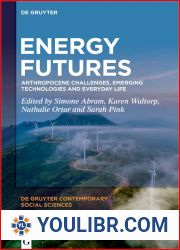
 49
49  2 TON
2 TON

